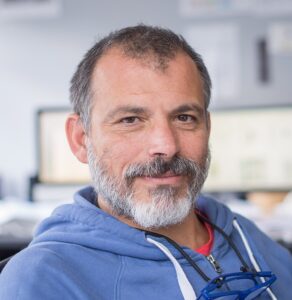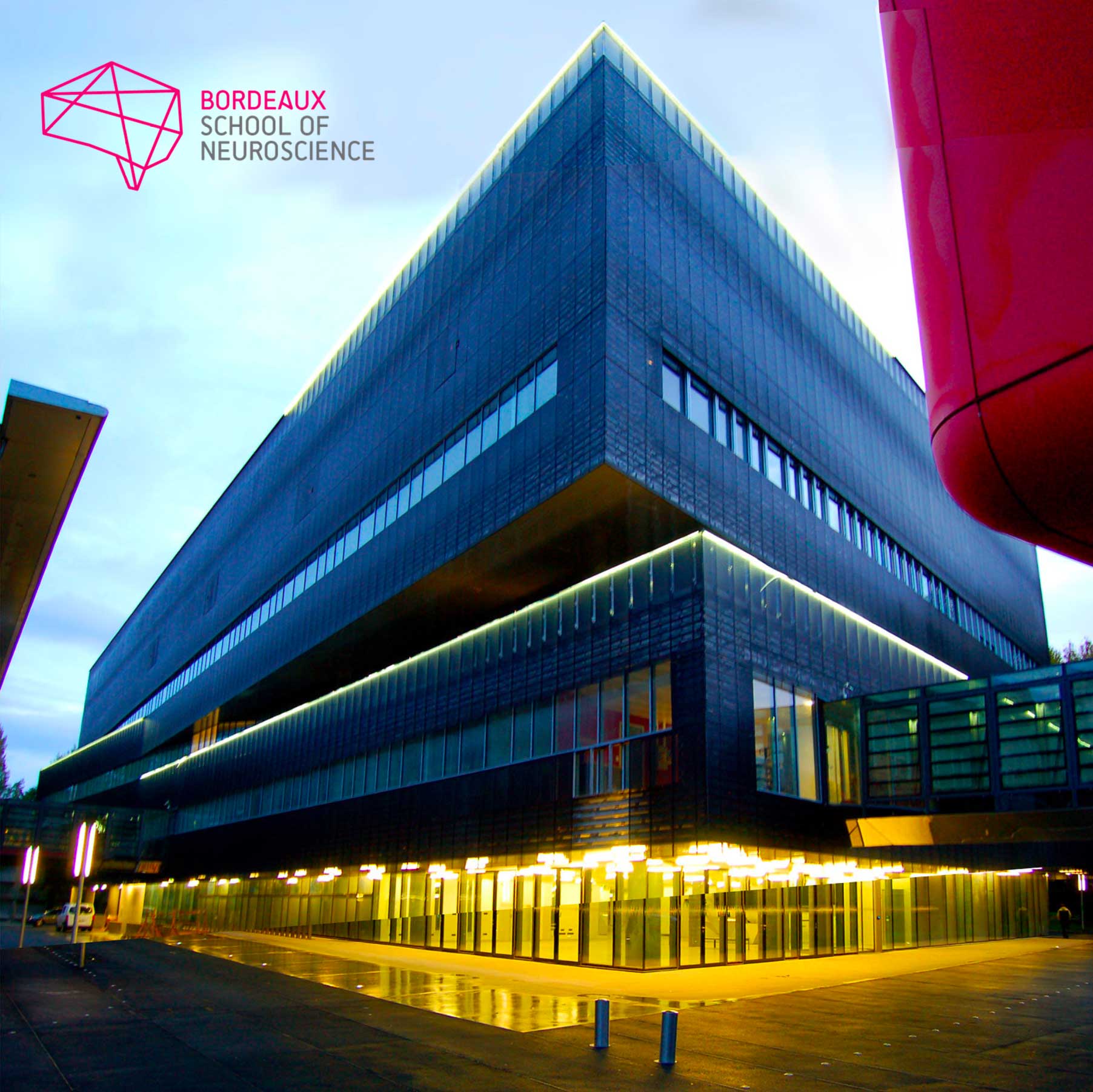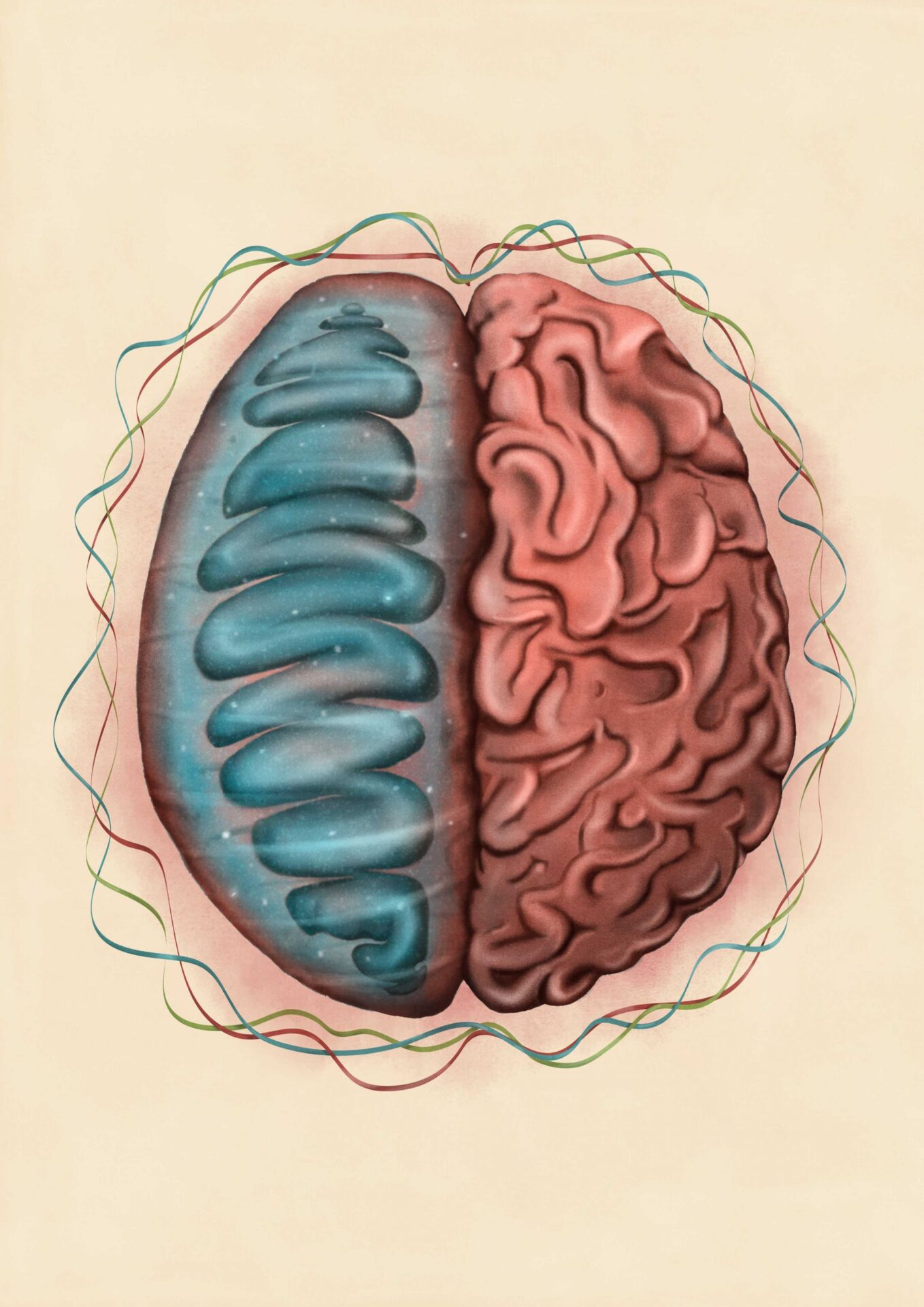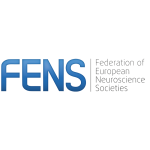Course overview
The brain is one of the most energy-consuming organs of the body. Indeed, one could say that the main difference between the brain and a computer is the plug: once plugged, energy is not an issue for the computer, but it is a constant burden for each cell of the brain. As such, energy metabolism in the brain is not just a mere housekeeping and survival service, but it constitutes an essential element directly participating in signaling, computation and behavior.
This course will address the different ways by which energy metabolism participates to high-order brain functions and the underlying cellular, molecular and circuit mechanisms.
Course directors

Juan Pedro Bolaños
Course director
University of Salamanca,
Spain

Giovanni Marsicano
Co-director
NeuroCentre Magendie – INSERM
University of Bordeaux
France

Anne-Karine Bouzier-Sore
Co-director
Centre RMSB – CNRS
University of Bordeaux
France
Keynote Speakers
Felipe Barros – Centro de Estudios Cientificos, Valdivia, Chile
Juan Pedro Bolaños – University of Salamanca, Spain
Gilles Bonvento – CNRS, MIRCen, Paris, France
Anne-Karine Bouzier-Sore – CNRS, Centre RMSB, Bordeaux, France
Daniela Cota – INSERM, Neurocentre Magendie, Bordeaux, France
Jaime De Juan-Sanz – Institut du Cerveau, Paris, France
Stephanie Fulton – University of Montreal, Canada
Ralf Jockers – Inserm, Institut Cochin, Paris, France
Giovanni Marsicano – INSERM, Neurocentre Magendie, Bordeaux, France
Aude Panatier – INSERM, Neurocentre Magendie, Bordeaux, France
Luc Pellerin – IRTOMIT, Poitiers, France
Carmen Sandi – EPFL, Lausanne, Switzerland
Instructors
Felipe Baeza-Lehnert – University of Leipzig, Germany + Centro de Estudios Científicos, Valdivia, Chile
Jerome Baufreton – University of Bordeaux, France
Luigi Bellocchio – University of Bordeaux, France
Giovanni Bénard – MRGM Laboratoty, Bordeaux, France
Abel Eraso Pichot – University of Bordeaux, France
Ignacio Fernandez-Moncada – University of Bordeaux, France
Marina Garcia Macia – University of Salamanca, Spain
Anna Hadjichambi – Institute of Hepathology, London, UK
Morgane Jego – University of Bordeaux, France
Daniel Jimenez – University of Salamanca, Spain
Christos Konstantinou – Institute of Hepathology, London, UK
Rodrigo Lerchundi – MIRCen, CNRS, Paris, France
Shingo Nakajima – University of Montreal, Canada
Antonio Pagano-Zottola – Institut de Biochimie Génétique et Cellulaires, Bordeaux, France
Sandrine Pouvreau – University of Bordeaux, France
Rubén Quintana-Cabrera – University of Salamanca, Spain
Course content
Topics & Techniques
The following techniques will be covered during the course:
- Cultures of mouse primary astrocytes and neurons.
- Bioenergetic profiles in mouse primary astrocytes and neurons using the Seahorse equipment.
- Isolation of neurons and astrocytes from adult mice using immunomagnetic approach.
- Flow cytometric analysis of mitochondrial membrane potential and mitochondrial ROS production in cultured primary brain cells and in acute immunomagnetically isolated brain cells.
- Purification of mitochondrial fraction using differential centrifugation and immunomagnetic mitochondrial isolation approach.
- Analysis of the mitochondrial respiratory chain organization using blue native gel electrophoresis from mitochondria isolated from either cultured cells, acutely isolated brain cells and brain-specific regions.
- Study of real-time changes in mitochondrial membrane potential using confocal microscopy in cells expressing genetic ATP and ROS probes.
- Classical techniques for the determination of common energy metabolites and enzyme activities in including the MRC complexes
- Glucose and lactate metabolism in neurons: comparison of [1-13C]glucose and [3-13C]lactate metabolism in neuronal cultures, followed by 13C-NMR spectroscopy.
- Glucose and lactate metabolism in astrocytes : comparison of [1-13C]glucose and [3-13C]lactate metabolism in astrocytic cultures, followed by 13C-NMR spectroscopy.
- Metabolic changes during brain activity: in vivo functional MRI and MRS during whisker stimulation: visualisation of the barrel cortex and quantification of the lactate increase during brain activity in rat
- Impact of metabolism for neuroprotection: longitudinal study (diffusion MRI) to follow brain lesions and regression following different injected substrates (pyruvate, glucose, lactate etc…)
- Electrophysiology of hippocampal and cortical slices: comparison of population spike amplitudes and duration of activity with different substrates (glucose, ketone bodies, lactate, glucose+lactate…)
- Analysis of mitochondrial respiration in ex vivo brain areas using the Oroboros technology
- Mitochondrial calcium analysis by in vitro and in vivo imaging using Fiber photometry
- Use of metabolic biosensors by in vitro and in vivo imaging using Fiber photometry
- Impact of modulation of brain mitochondrial metabolism on behavior in mouse
- Investigation of mitochondrial proteins trafficking using unconventional genetic tools
- Impact of brain mitochondrial activity on whole-body energy balance.

Bordeaux School of Neuroscience, France
The Bordeaux School of Neuroscience is part of Bordeaux Neurocampus, the Neuroscience Department of the University of Bordeaux. Christophe Mulle, its current director, founded it in 2015. Throughout the year, renowned scientists, promising young researchers and many students from any geographical horizon come to the School.
The school works on this principle: training in neuroscience research through experimental practice, within the framework of a real research laboratory.
Facilities
Their dedicated laboratory (500m2), available for about 20 trainees, is equipped with a wet lab, an in vitro and in vivo electrophysiology room, IT facilities, a standard cellular imaging room, an animal facility equipped for behavior studies and surgery and catering/meeting spaces. They also have access to high-level core facilities within the University of Bordeaux. They offer their services to international training teams who wish to organize courses in all fields of neuroscience thanks to a dedicated staff for the full logistics (travels, accommodation, on-site catering, social events) and administration and 2 scientific managers in support of the experimentation.
Registration
Fee : 3.500 € (includes tuition fee, accommodation and meals)
Application closed on 1 March 2021
The CAJAL programme offers 4 stipends per course (waived registration fee, not including travel expenses). Please apply through the course online application form. In order to identify candidates in real need of a stipend, any grant applicant is encouraged to first request funds from their lab, institution or government.
Kindly note that if you benefited from a Cajal stipend in the past, you are no longer eligible to receive this kind of funding. However other types of funding (such as partial travel grants from sponsors) might be made available after the participants selection pro- cess, depending on the course.
COVID-19 update: in case the Bioenergetics for Brain Function course is postponed due to the pandemic, all applicants will have the choice to maintain their application or cancel it. Applicants who were already selected to attend will not have to reapply and will automatically be enrolled in the rescheduled course.
In addition, the Cajal Programme will not, as far as possible, request the registration fee from selected applicants until the course has been secured and confirmed. Nevertheless, should the course be cancelled before the course dates and the registration fees already collected, participants will be reimbursed.












